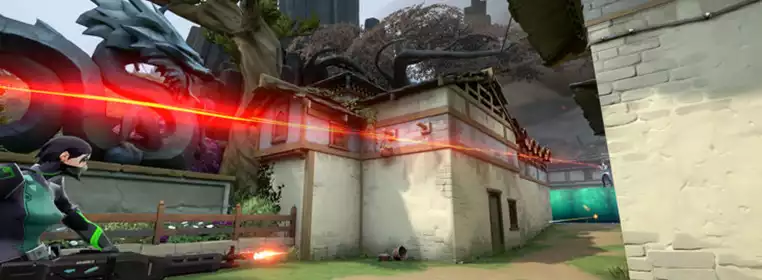VALORANT's Controversial Anti-Cheat May Have Yet to Show Us Its Final Form

With VALORANT’s closed beta ending, and launch day closer than ever, one of the last lingering issues and common complaints about the game remains with the Vanguard anti-cheat. The initial wave of negative feedback on the feature was regarding its intrusive permissions that caused critical failure of people’s systems. The software was likened to a virus, and in its initial state it was always on, even when VALORANT wasn’t running, and caused severe problems with people’s core PC functions such as graphics card cooling.
Since that time, Riot have tuned down the aggressiveness of the anti-cheat, allowing players to turn it off when the game isn’t running, and several bugs with its interactions with core PC functions have been fixed. However, the remaining player base who have not been critically affected by the software have now found something new to take issue with: for all its hubbub and the lengths to which Riot goes to catch cheaters, they are still incredibly abundant.
Philip Koskinas from Riot tweeted that approximately 9000 cheaters have been banned from the game a few weeks ago, and then another 1600 shortly after. However, this has come under fire from some members of the community for not being nearly enough - especially from high ELO players, where such behaviour is more prevalent and more potent in its effect as well. These numbers have been compared to early ban numbers from other games, such as Apex Legends having banned 355,000 accounts in the first month of the game’s life. Despite VALORANT still being in closed beta compared to Apex Legends’ immediate surprise launch, most people consider this to be a valid comparison due to both games being free to play, and the sheer size of the difference between the two numbers.
The argument seems to be: if Vanguard is taking so many liberties with people’s PCs, surely it should be much more effective at actually banning cheaters? Why are the numbers so low? Riot has an answer. In a blog post about the closed beta ending and the imminent launch of the game, Riot dedicates a section to the anti-cheat. They reveal that the purpose of Vanguard in the beta for them was mostly to gain as much information as possible on every imaginable type of cheat that can be done in VALORANT and that can be caught by Vanguard. According to them, all of the bans up until this point have been manual review bans - they have yet to unleash Vanguard’s final form.
“But during closed beta we’ve held off on deploying the second half of our tech, our auto-banning systems, because we needed this time to understand what to action on, especially when it comes to hardware bans. This will be different at launch”
Riot seems to be committing to a whole new look for Vanguard, one that more closely aligns with the picture they painted of it at launch. If they are to be believed, the information they gleaned from the closed beta testing period will be used to finally enact their auto-banning system, which should greatly increase the raw numbers of the bans as well as implement what they call Soul Bans, which are supposed to ban all past present and future Riot accounts that any cheater may create in order to exploit the nature of the free-to-play game. Until launch, it remains to be seen if this grand vision can be delivered upon. Riot has so far had a mixed bag of delivering on such tall promises, of which they have made many, but if Vanguard truly has an entire level of power that has yet to be unlocked, the launch of the game could prove to be a bigger win for Riot than previously expected.
Images via Riot Games
